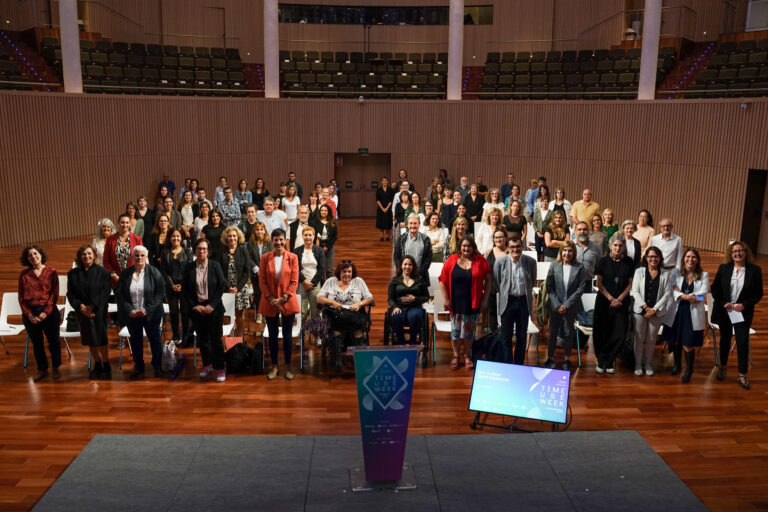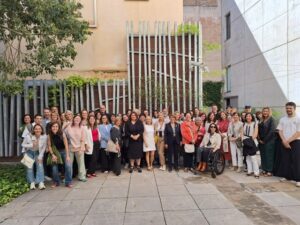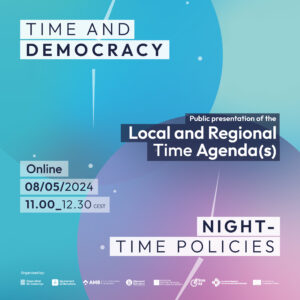Between 16th and 20th October, the Time Use Week’s 10th edition was hosted in Barcelona as the international meeting point in time policies.
It counted with the participation of more than 700 participants from all over the world, who followed the different discussions both virtually and in-person.
The Time Use Week 2023 (TUW) just finished after almost two weeks of discussions and debates on the right to time. The aim of this edition, with the title For a new balance of time, was to develop transversally concepts that are already being applied in a specific way — becoming a guide for time policies in their different areas.
At this Time Use Week edition, the power of time policies as a driving force for social transformation has been highlighted, as well as the increasing interest on this topic around the world at all levels of governance. Among all the debates, the highlighted proposals were:
- Time policies are recognised as a lever for change, both at the local, regional, national, and international arenas. The main discussion during the week, based on the document ‘Right to Time: Perspectives for the 21st century‘, has focused on how to make it effective from an international level. It counted with the participation of institutions such as the European Committee of the Regions, UN Women, or ALDA (the European Association for Local Democracy), and from a regional and local level, with contributions from the member institutions of the Local and Regional Governments Time Network. In addition, some key implementation areas have been discussed in-depth such as the relationship between time and democracy, children’s time, care time, or working time, among others.
- The relation between working time and the other times in our lives emerges as a key working area if we are to reach such a new time balance —always taking into consideration the gender perspective. To this end, the document ‘Towards a new time balance‘ showcased measures already being implemented to address such a global problem, such as the reduction of working time, flexibility, or digital disconnection measures, among many others. International institutions present at the debate —Eurofound, ILO, and CEPAL— highlighted such an approach as a key discussion for the future of working time. In addition, collective bargaining, through the main social partners, was recognised as a tool to move towards the effective implementation of the presented proposals.
- The Local and Regional Governments Time Network has its presence extended and consolidated in Latin America. The Time Use Week was attended by a delegation from the Aburrá Valley Metropolitan Area, as well as Bogotá, both from Colombia, and with the virtual participation of CEPAL and Latin American regions, metropolises, and municipalities committed towards the right to time, from Argentina, Mexico or Uruguay.
- Catalonia consolidates its position as an innovation hub for time policies. A key piece for such position is the commitment shown by its institutions both at the institutional opening, on 16th October, and with the high participation to the Catalan Network for the Right to Time encounter — which currently counts with more than 200 member organisations. Moreover, the Time Use Week also reached different cities and organisations, including training elected representatives on time policies or sectoral debates co-organised with organisations that are already implementing the right to time.
As the conferences’ remarks, Ariadna Güell Sans, co-coordinator of the Time Use Initiative, highlighted that “the right to time as a final objective already enjoys a broad consensus, and now we must collectively build solutions to make it possible with the joint work of all involved people and stakeholders.”








